The Russian diaspora in Switzerland walk a fine line
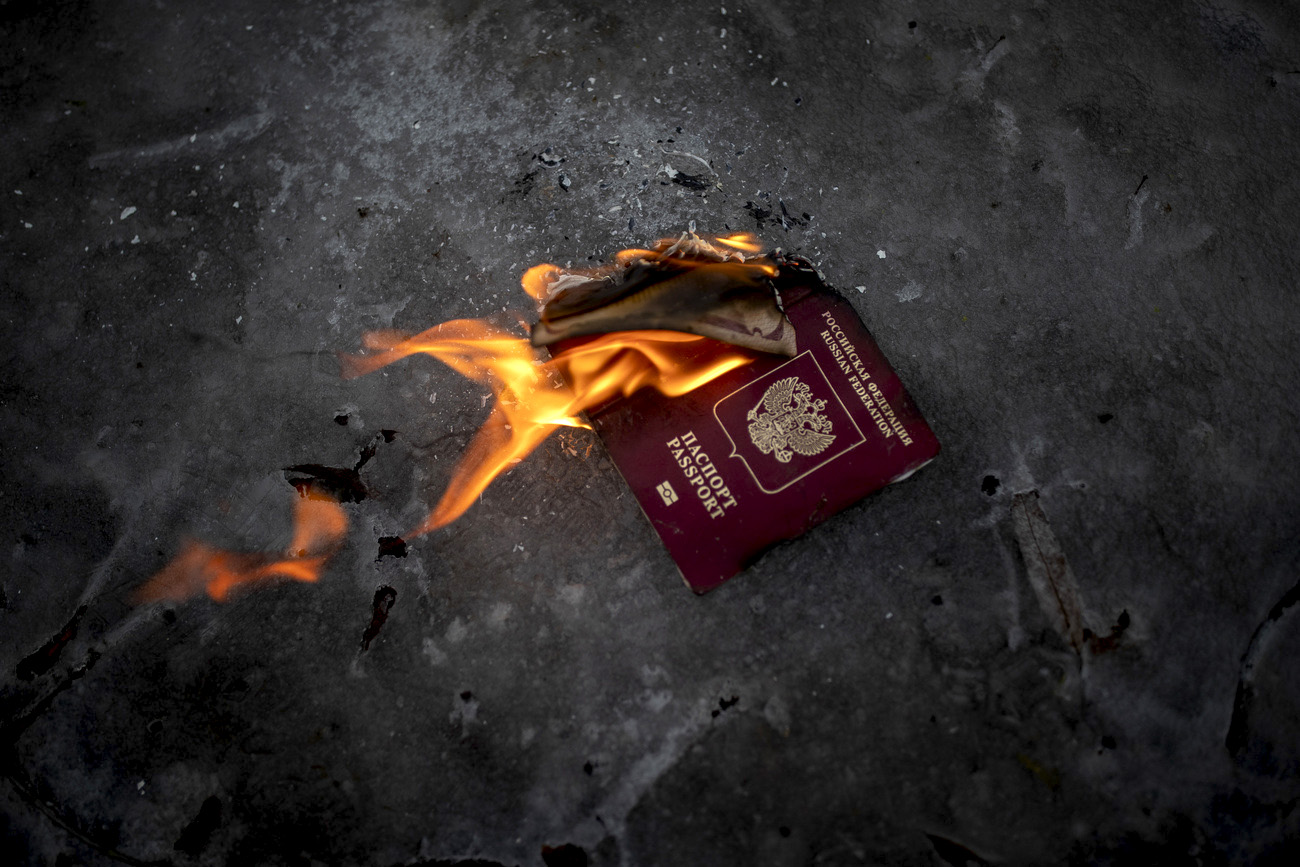
Since the start of the war some Russians in Switzerland are choosing to keep silent.
“Not all Russians are for Putin, and Putin is not all of Russia,” a group of Russian artists living in Switzerland wrote in an open letter.External link Apparently, this is not self-evident. There are increasing reports in the Swiss media of discrimination against Russians because of the Ukraine war, and some social media posts even speak of burgeoning “Russophobia”.
For example, a picture that made the rounds on Instagram in March showed a student at an international school in Montreux who had allegedly been beaten up because she was from Russia. A phone call to the school, however, revealed that this was fake news, propaganda. So, what is the mood towards Russians in Switzerland actually like?
Over a third of the approximately 16,450 Russian nationals living in Switzerland reside in the cantons of Geneva and Vaud. The cantonal counselling services against racism in Geneva and the French-speaking Swiss organisation the International League against Racism and Anti-Semitism (Ligue Internationale Contre le Racisme et l’Antisémitisme, or LICRA) have so far received no discrimination complaints from Russians.
“This doesn’t mean that it doesn’t exist,” cautioned Anne-Laure Zeller of the Geneva counselling centre against racism. It could simply be that this group of people does not know about the centre’s services or that they do not need help. “Experience shows it usually takes a shocking and damaging incident, such as a verbal insult, or repeated discrimination or microaggressions over a period of time, before a person turns to us.” Moreover, people often become the target of racism because of visual factors, such as skin colour or distinctive religious signs, like a headscarf. Russians blend in.
Old grievances
Anna, who did not want her surname to be given publicly, comes from the Russian port city of St Petersburg. She has been living in Switzerland for over ten years. A linguist by training, she is a member of an academic organisation hosting events on Russian culture and language in French-speaking Switzerland. No cases of discrimination against people of Russian origin have come to her attention through that network. “Let’s be honest: most Swiss would be unable to tell whether someone was speaking Russian or Ukrainian on the streets,” she says. Many Ukrainians speak Russian as their mother tongue, and even family names give no indication of a person’s origin.
However, she went on to explain, other people of Slavic descent can sometimes tell from the accent whether a Russian speaker comes from Russia or not. Any animosity expressed in Switzerland would likely come from people from the former Soviet Union. “But this has been the case for several years now, and not just since the latest events. It is based on the complex history of the 20th century and the identity aspirations of the neighbouring peoples,” she says.
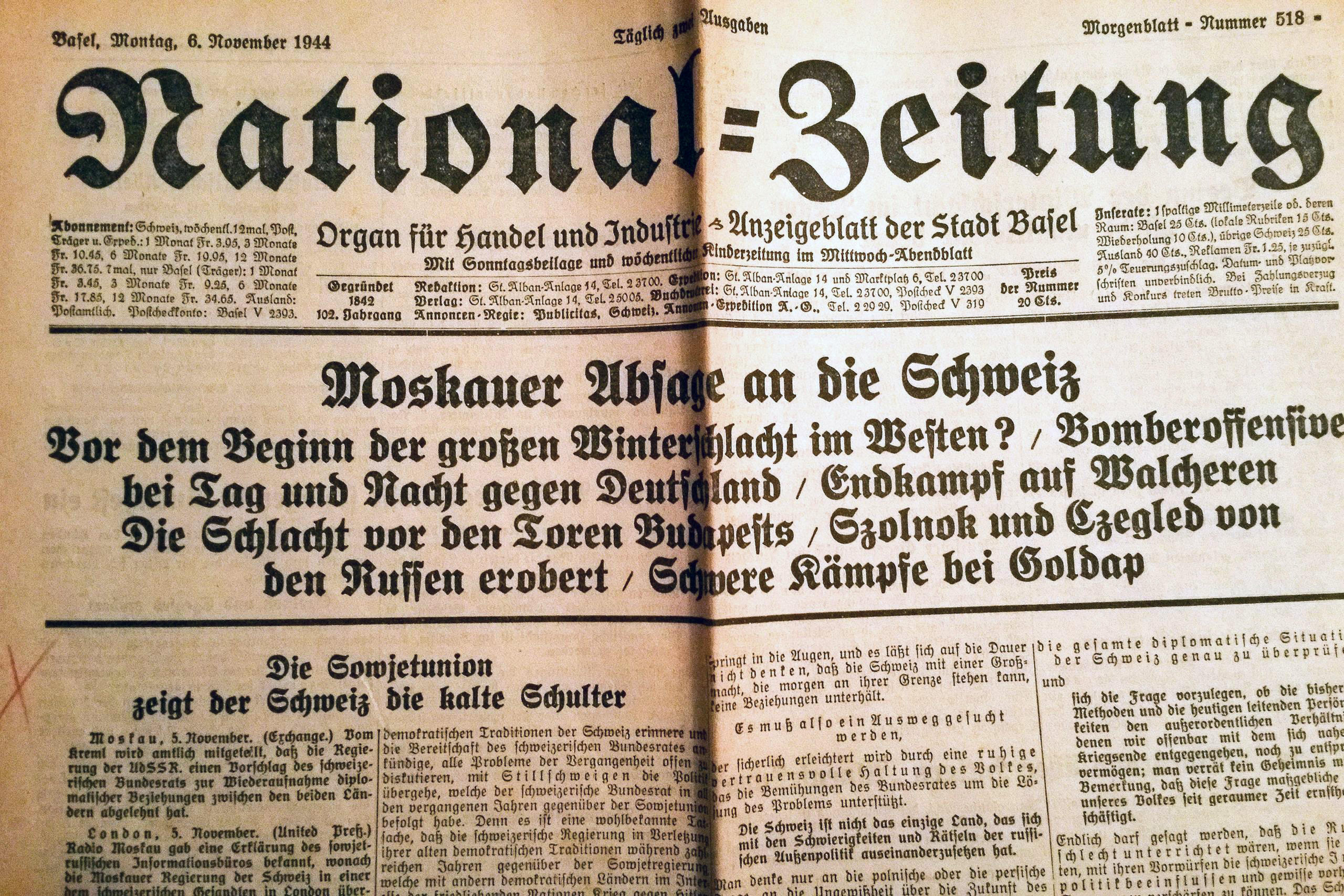
More
Switzerland and Russia go back a long way
Ukrainians, too, might have reasons to feel and express animosity towards Russia. “For years, Russia has ignored the existence of Ukraine as an independent country,” she says. “Some Ukrainians could well dislike Russians for this reason.”
Isolated incidents
Russia’s war against Ukraine can only have exacerbated this antipathy. A Russian woman told SWI swissinfo.ch how she was violently insulted by a Ukrainian man on the tram in Geneva. That is one of a few isolated incidents. Discriminatory comments are frequently aired on social media rather than on the streets.
Neither does there seem to be a systematic problem in schools. In Vaud canton, only one case of discrimination was reported, in early March, at a school in Coppet, but the school management acted quickly and solved the problem. “Since the start of the war in Ukraine, school principals and teachers have been keeping a watchful eye. The office in charge of promotion and prevention in schools has circulated a document reminding staff how to deal with any racist remarks or violence,” explained Julien Schekert, spokesman for the Department of Education and Youth.
In canton Geneva too, teachers are very attentive to bullying, and there are several awareness programmes, according to Pierre-Antoine Preti, press officer for the department of education. “There are many Russian-speaking students in Geneva,” he says. “This can even help Ukrainian refugees to integrate more quickly.”
Cultural events interrupted
Nevertheless, the war in Ukraine is a matter of concern for Russians in Switzerland. A few private individuals have contacted the Federal Commission against Racism and “asked questions about the cancellation of invitations to Russians in the cultural and sporting sectors”, said Alma Wiecken, the commission’s managing director.
Thus, the Verbier Festival of classical music relieved the Russian conductor Valery Gergiev of his position as musical director, because he has long been known as a supporter of Russian President Vladimir Putin. Some institutions have gone even further: in Thurgau, a concert by the Russian cellist Anastasia Kobekina was cancelled – even though she had spoken out against the Ukraine war.
For many people in Switzerland, such blanket condemnations do not make sense. The Lausanne Chamber Orchestra, for example, announced in a statement that they do not discriminate against Russian music or Russian artists – and nor do they require them to take a stand against their government: “We are aware that Russians who speak out against the government risk not only their own lives but also those of their loved ones. It would be naïve and dangerous to demand freedom of expression from those who do not have it.”
A delicate balancing act
It is precisely this dilemma that many Russians, living in Switzerland seem to be facing today. Should they now distance themselves from the Russian government, because many people in Switzerland expect it? Or is it better just to remain silent? Several interview requests to organisations that hold events for Russians in Switzerland – be it language courses, dance evenings, sports meets or cultural happenings – have gone unanswered. The issue is apparently too sensitive to talk about.
Some organisations no longer even dare to hold public events. Anastasia Nicolier, who organises and takes part in social and cultural events for Russian speakers in French-speaking Switzerland, said: “Our organisation’s events are held in Russian and attract people of different nationalities. We have decided to take a break for the time being. It’s not just a question of political positioning – we find it inappropriate and tactless to organise festive events in time of war.”
The linguist Anna also notes a great malaise, because even private individuals are suddenly being asked to take a stand on the politics of their home country. “A friend told me I had to publicly distance myself from the politics of my president. Yet I never once voted for Putin, and I left Russia when the political situation took a bad turn.”
She has also been criticised for being concerned not only about Ukrainians but also about Russians – for instance, those being politically persecuted inside Russia. “This doesn’t mean that I negate the situation of the Ukrainians; far from it. But why do I have to take sides? A lot of people are suffering from today’s situation; you don’t have to weigh one side up against the other.”
Preaching unity
Orthodox Archpriest Emilien Pochinok is striving to prevent negative sentiment towards Russians. In the Exaltation de la Sainte Croix Cathedral in Geneva, one of the largest Orthodox churches in the Lake Geneva region, he preaches to Russian-speaking faithful from over ten nations. “We are one big Slavic family,” said Pochinok, who himself came to Switzerland from Moldova 15 years ago. This unity is absolutely central for him. “We may be different, but we have much more in common. I want to stress this point.”
At first, the parish sent aid to the Ukrainian border. Now it is supporting refugees in Switzerland. However, the situation is constantly changing, the archpriest explained. “To start with, the Ukrainians were mainly concerned with finding food and having a roof over their heads; but now, more than a month since the outbreak of the war, some are asking themselves many questions. ‘How could God allow this war? Why are Russian soldiers killing Ukrainian civilians?’”
Mixed with the despair are feelings of anger and hatred. In such cases, he tries to find the right words: “We must not judge, we must not take sides, we must pray for peace.” This is not easy for everyone. During confession, a Ukrainian woman told him how she felt loathing whenever a Russian congregant was standing behind her in church. “I say: you have to be able to forgive. You have to look forward. Each day is a gift from God.”

In compliance with the JTI standards
More: SWI swissinfo.ch certified by the Journalism Trust Initiative








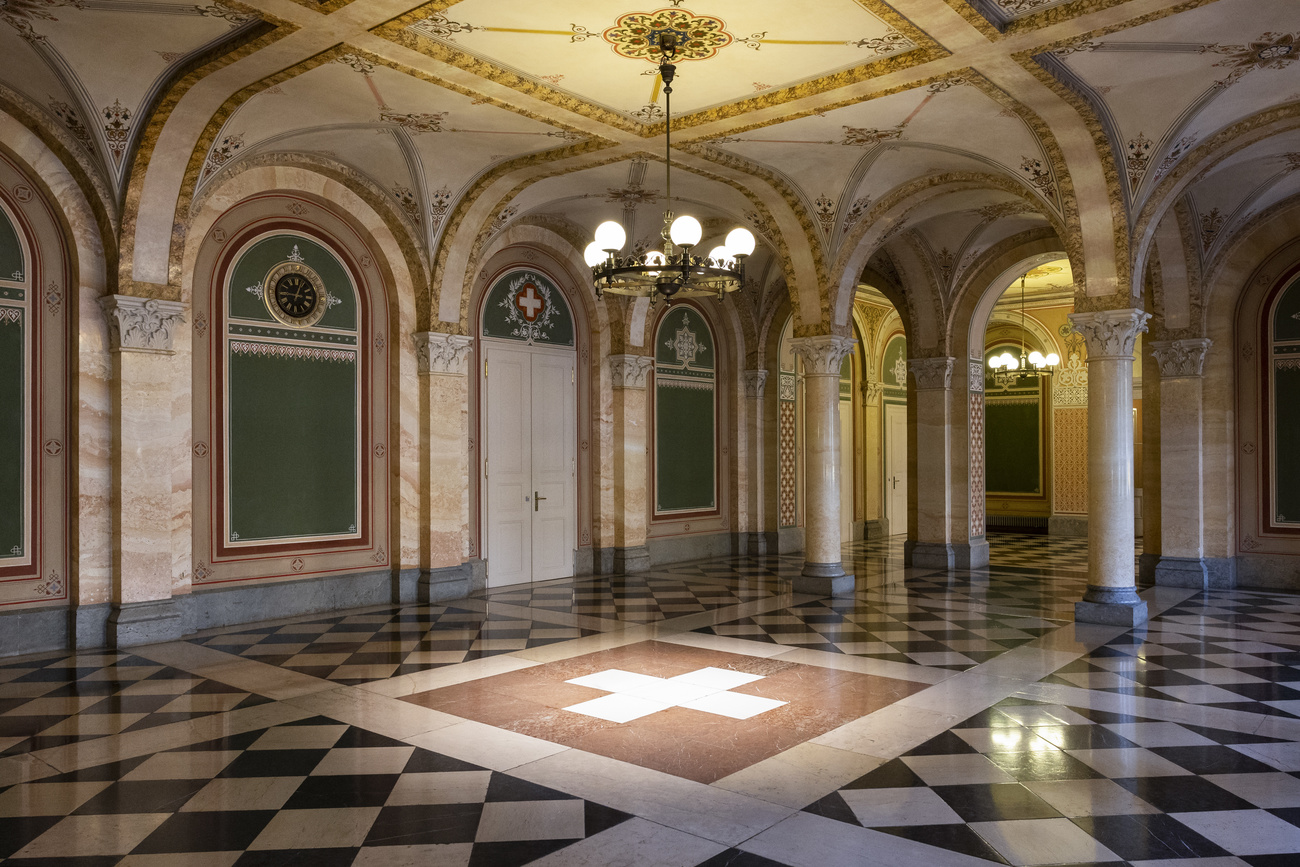
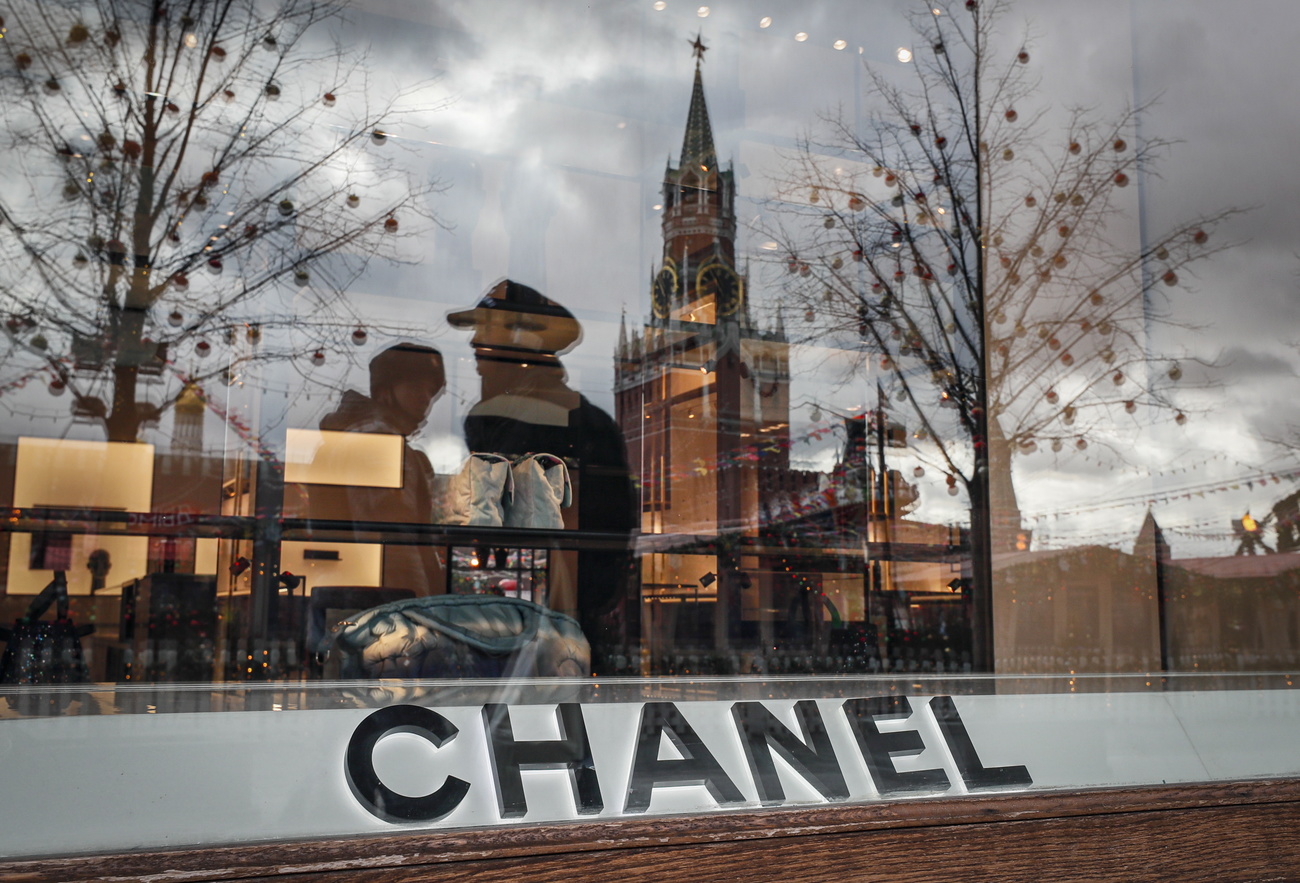
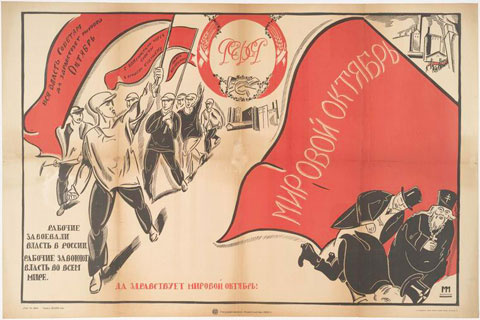
You can find an overview of ongoing debates with our journalists here . Please join us!
If you want to start a conversation about a topic raised in this article or want to report factual errors, email us at english@swissinfo.ch.